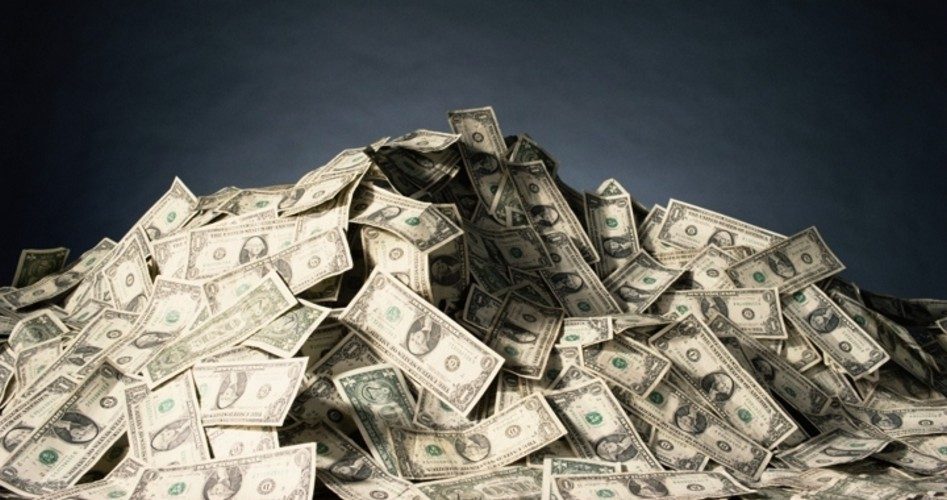
The U.S. Supreme Court struck down limits on aggregate campaign donations April 2 in a narrow 5-4 decision. The court plurality in McCutcheon v. Federal Election Commission, while upholding the $2,600 limit on donations to individual candidates, said wealthy political donors should be able to donate the maximum level to as many candidates as they desire. These donations can now, therefore, exceed the previous aggregate limit of $48,600.
“The Government may no more restrict how many candidates or causes a donor may support than it may tell a newspaper how many candidates it may endorse,” Chief Justice John Roberts wrote in the court opinion. “The whole point of the First Amendment is to protect individual speech that the majority might prefer to restrict, or that legislators or judges might not view as useful to the democratic process.” Roberts noted that Congress had a responsibility to enact laws “preventing corruption or the appearance of corruption,” but that there was no corruption prevented by imposing the $48,600 aggregate campaign limitation.
Nothing in the decision impacted the 2010 Citizens United decision that lifted all limits on political donations to independent expenditures. During the 2012 election cycle, independent organizations spent billions of dollars to influence the electorate with varying degrees of success. Karl Rove’s American Crossroads/Crossroads GPS spent some $176.4 million in 2012, most of which was devoted to nine races, and Rove lost eight of the nine (winning only the governor’s race in overwhelmingly Republican Nebraska). Meanwhile, the much smaller Liberty-For-All SuperPAC spent $1.7 million on 10 races and won 90 percent of them (losing only former Rep. Ron Paul’s presidential campaign). The 2012 cycle saw the rise of a number of powerful Tea Party-aligned, well-funded independent groups that won substantial victories in Congress, including the Club for Growth, FreedomWorks, Senate Conservatives Fund, and Heritage Action for America.
The growth of such independent organizations has also created a breakdown in the ability of political parties — who traditionally held the purse-strings to reelection efforts — to keep congressmen in line behind leadership. For example, House members staged an abortive coup against House Speaker John Boehner in December 2012, but the only repercussions were that four of the members (Justin Amash of Michigan, Walter Jones of North Carolina, Tim Huelscamp of Kansas, and David Schweikert of Arizona) were stripped of a committee assignment. Nothing else ever came of the matter, and Amash has amassed his own power base independent of party control and successfully demanded floor votes on issues, such as NSA surveillance of Americans, against the wishes of GOP leadership.
The McCutcheon decision may arrest the recent breakdown of the power of political parties as disciplinary mechanisms, because it leveled the playing field between party organizations — which have labored under strict contribution limits — and independent organizations which saw their contribution limits lifted in early 2010. The Washington Post noted on April 2, “The decision provides a financial boost to political parties, which have lost their dominance with the rise of super PACs and other independent political groups that can raise unlimited sums.”
The McCutcheon decision has also re-energized the fury of the political Left, which had long been comfortable with its own control of five of the top six media outlets — a virtual media monopoly — in the pre-Citizens United world. While the Citizens United decision infuriated the Left, the McCutcheon decision will only enrage them further.
This is also true of leftists on the Supreme Court. Justice Stephen Breyer’s dissent revealed that court leftists are still reeling from being rebuffed by the court majority in the 2010 Citizens United decision, which he claims “understates the importance of protecting the political integrity of our governmental institutions.” Although the First Amendment to the U.S. Constitution explicitly states that “Congress shall make no law … abridging the freedom of speech, or of the press,” Breyer sees the federal government as having a strong role in regulating political debate. “Where enough money calls the tune, the general public will not be heard,” Breyer stated. “The First Amendment advances not only the individual’s right to engage in political speech, but also the public’s interest in preserving a democratic order in which collective speech matters.” Breyer — and the three other justices appointed by Clinton and Obama — see the issue in terms of a marketplace of opinions in dire need of direction from Congress: “A free marketplace of political ideas loses its point. That is one reason why the Court has stressed the constitutional importance of Congress’ concern that a few large donations not drown out the voices of the many.”
But Chief Justice Roberts replied to Breyer that “If the First Amendment protects flag burning, funeral protests and Nazi parades — despite the profound offense such spectacles cause — it surely protects political campaign speech despite popular opposition.” Justice Clarence Thomas — who concurred with the majority striking down the aggregate campaign donation limit — wrote an opinion stating that not one of the political donation limitations survives constitutional scrutiny, including the $2,600 per candidate maximum.



